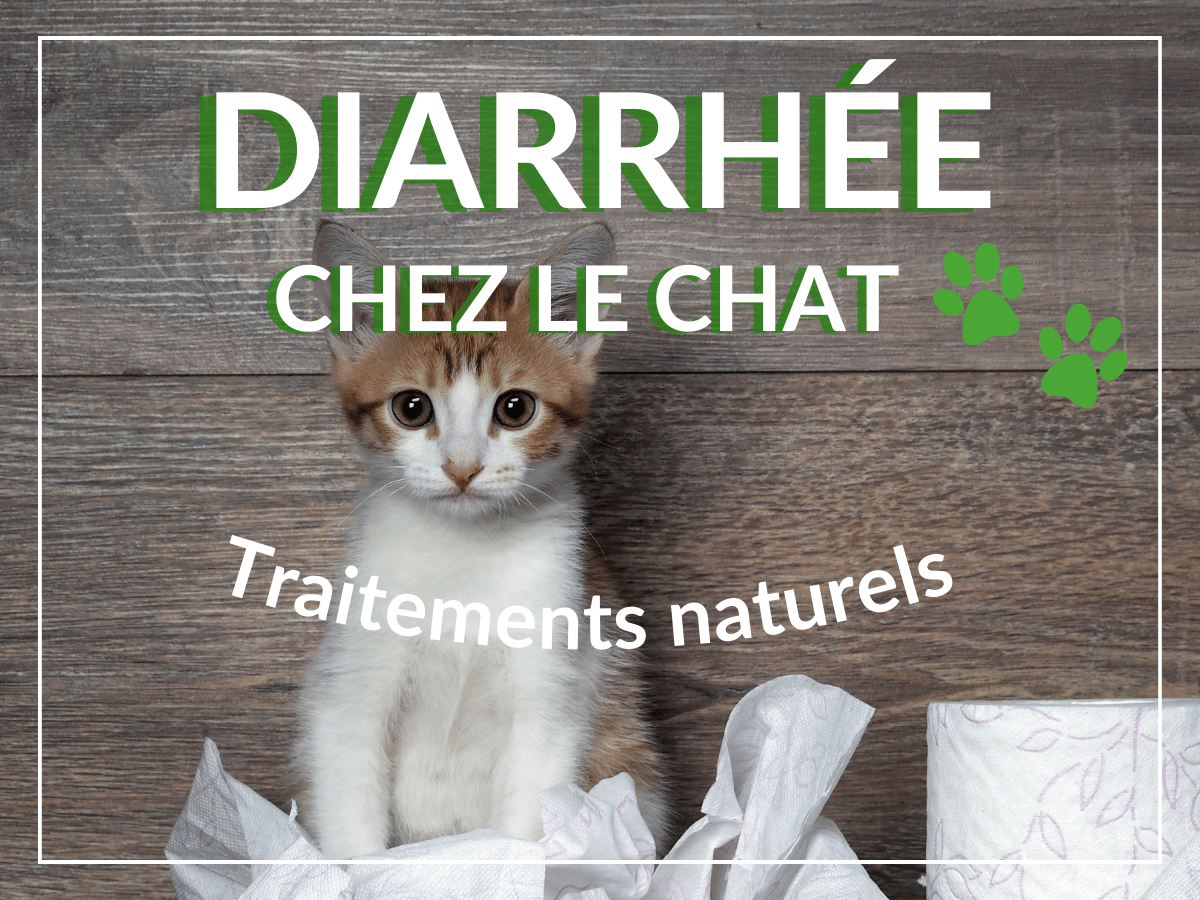
What are the best natural remedies to help ease my cat's diarrhea?
Is your cat experiencing diarrhea? You may have noticed unusual or watery stools and are wondering what steps to take to help them.
Diarrhea can indicate a minor issue or a more serious health concern, so acting quickly is essential. Understanding the potential causes and available solutions can help you respond effectively.
This article guides you through the causes, symptoms, and both traditional and natural solutions to help your furry friend regain their health and vitality.
What is diarrhea in cats?

Diarrhea in cats is a common digestive issue characterized by loose, watery, or frequent stools. It can appear suddenly or become a chronic problem if it persists over time.
Cats of all ages can experience diarrhea, which may stem from dietary changes, infections, allergies, or other health issues.
When your cat has diarrhea, identifying the cause quickly is crucial for selecting the right treatment and preventing complications like dehydration.
What causes diarrhea in cats?

Diarrhea in cats can arise from a variety of factors, ranging from mild to more serious conditions:
- Dietary changes: Switching foods too quickly can upset a cat’s delicate digestive system.
- Parasites: Infestations with intestinal worms or protozoa, such as giardiasis, can lead to digestive problems.
- Infections: Bacterial or viral infections can cause acute or chronic diarrhea, often accompanied by symptoms like vomiting or fever.
- Food allergies: Certain cat foods can trigger adverse reactions, leading to loose or watery stools.
- Stress: Cats are sensitive to changes in their environment, such as moving or introducing a new pet, which can result in diarrhea.
- Medication side effects: Antibiotics or other treatments may disrupt the gut's natural balance, causing diarrhea.
What symptoms should you watch for?

Symptoms of diarrhea can vary depending on the underlying cause. Key signs include:
- Loose or watery stools, sometimes with a mucus-like texture.
- Presence of blood in the stool (bloody diarrhea).
- Changes in stool color, such as yellow or green diarrhea.
- Dehydration: Affected cats may drink more or appear lethargic.
- An irritated anus.
- Visible third eyelid: This thin membrane in the inner corner of the eye may indicate general fatigue, dehydration, or digestive issues. It often reflects a decline in your cat’s overall health.
If these symptoms persist for more than 48 hours or your cat’s condition worsens, consult a veterinarian promptly.
What are conventional treatments?

For mild cases, simple solutions may suffice, but it's essential to ensure your cat receives proper care:
- Pharmacy medications for cat diarrhea: Products like Smecta or Phosphaluvet can help soothe digestive distress. Always consult a veterinarian before use.
- Antibiotics: When infections are involved, treatments like diarsanyl or Sultrian may address bacterial causes.
- Dewormers: These can eliminate intestinal parasites.
- Special diets: Anti-diarrhea kibble or wet food can calm the stomach and reduce irritation.
What are natural remedies for cat diarrhea?

Natural remedies for cat diarrhea provide a gentle and effective way to help your furry friend feel better.
Here are some simple yet powerful natural treatments to support your cat’s recovery:
- Rice water: Easy to prepare, rice water is highly effective at soothing irritated intestines. Rich in starch, it acts as a natural binder, helping to firm up loose stools and prevent dehydration. Serve a small amount at room temperature to your cat.
- Probiotics for cats: These supplements help restore the balance of intestinal flora, often disrupted during diarrhea. They are particularly beneficial after antibiotic treatments or for managing chronic diarrhea. Make sure to choose probiotics designed specifically for cats.
- Suitable plants: According to the Journal of Feline Medicine and Surgery, psyllium, a natural fiber, can regulate bowel movements by absorbing excess liquid in the intestines. Chamomile, on the other hand, has calming and anti-inflammatory properties that can ease abdominal discomfort. Always use these plants under a veterinarian’s guidance.
- Cooked pumpkin: Pumpkin is high in soluble fiber, which helps normalize stool consistency. Add a small amount of unsweetened pumpkin puree to your cat’s meals to aid digestion.
- Enhanced hydration: Keeping your cat hydrated is crucial during episodes of diarrhea. Consider offering an electrolyte solution designed for pets to replenish lost minerals and fluids.
These natural treatments are especially helpful, but they should not replace a veterinarian’s consultation if symptoms persist or worsen.
How to ease diarrhea in kittens?

If your kitten is suffering from diarrhea, here are some valuable tips:
- Offer a simple diet: small portions of broth or rice that are easy to digest.
- Avoid dairy products, as they can worsen symptoms.
- Ensure constant access to fresh water to prevent dehydration.
- Add probiotics for cats to help restore their intestinal flora.
- Consult a veterinarian promptly if symptoms persist or your kitten appears lethargic.
Conclusion
Diarrhea in cats should not be ignored. Identifying the causes, monitoring symptoms, and using natural remedies or appropriate treatments are crucial for your cat’s well-being.
When in doubt, your veterinarian remains your best resource for advice on managing your cat’s diarrhea.
Care for your cat with gentle, natural methods that prioritize their health and happiness.
If you’re concerned about your pet’s health, our Free Animal Health Recommendation service can assist. Our Natural Health Advisors will provide personalized guidance on products and treatments tailored to your pet’s specific needs.

























Leave a comment
This site is protected by hCaptcha and the hCaptcha Privacy Policy and Terms of Service apply.